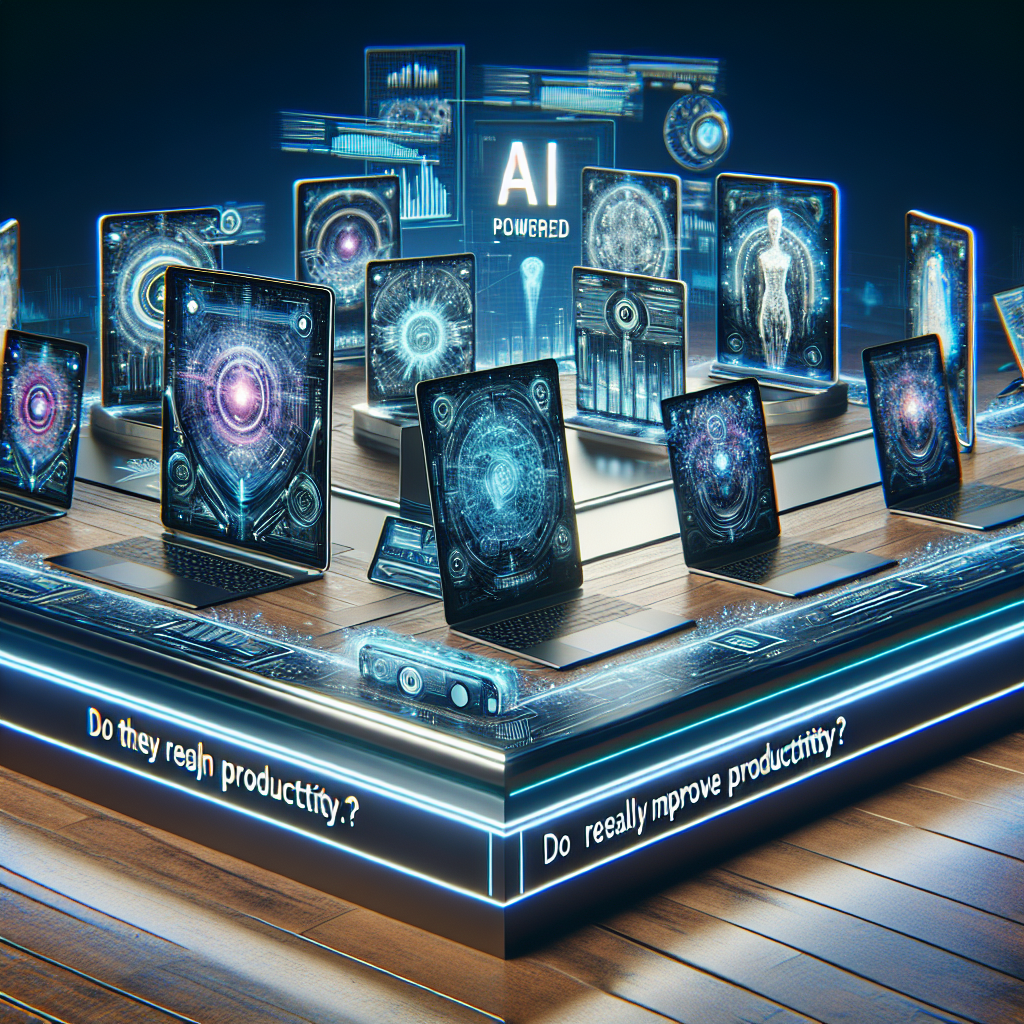Best AI-Powered Laptops in 2025: Do They Really Improve Productivity?
Introduction
In 2025, the integration of AI technologies into laptops has marked a significant evolution in personal computing. As AI becomes increasingly sophisticated, manufacturers have embedded these capabilities directly into laptops, promising enhanced productivity through features like advanced data analysis, automated tasks, and personalized user experiences. This article explores the effectiveness of these AI-powered laptops in boosting productivity, examining their technological advancements, real-world applications, and the overall impact on professional and personal efficiency.
Best AI-Powered Laptops in 2025: Do They Really Improve Productivity?
In the rapidly evolving world of technology, AI-powered laptops have emerged as a significant trend, promising to redefine productivity in numerous ways. As we step into 2025, several tech giants have unveiled laptops that are not just tools for computing but are intelligent companions designed to enhance efficiency and streamline workflows. The question that naturally arises is: do these AI-powered laptops genuinely improve productivity, or are they just another tech gimmick?
To address this, it’s essential to first understand what sets these AI-powered laptops apart from their predecessors. These devices are equipped with advanced processors that are optimized for machine learning and artificial intelligence tasks. This means they can handle complex algorithms and data sets with ease, allowing for features like predictive typing, advanced voice recognition, and proactive task management. For instance, imagine typing an email and having your laptop suggest complete sentences based on the context of your conversation. Such features can significantly cut down the time spent on routine tasks.
Moreover, AI integration goes beyond just handling mundane tasks. These laptops are designed to learn from user behavior, adapting to individual preferences and working styles. This personalization aspect means that the more you use your AI-powered laptop, the more attuned it becomes to your needs, potentially increasing your productivity over time. For professionals juggling multiple projects, such adaptive technology can be a game-changer, enabling seamless multitasking and efficient management of resources.
However, the benefits of AI-powered laptops extend into more creative realms as well. For designers, video editors, and other creative professionals, AI can automate time-consuming parts of the creative process, like editing raw footage or optimizing graphic design elements. This automation allows creatives to focus more on the innovative aspects of their work, potentially enhancing both the quality and quantity of output.
Despite these advantages, skepticism remains about whether these features translate into real-world productivity gains. Critics argue that increased automation might lead to over-reliance on technology, potentially stifling creativity and critical thinking. Furthermore, the cost of these high-tech devices can be a barrier for many, raising questions about accessibility and whether the productivity benefits justify the investment.
To evaluate the impact of AI-powered laptops on productivity, several studies and user reports have been analyzed. The findings generally indicate a positive trend, with users reporting significant time savings and reduced stress levels due to the automation of repetitive tasks. Businesses have noted quicker turnaround times on projects and improved employee satisfaction. However, these benefits are most pronounced in environments where technology integration is already advanced, suggesting that the infrastructure and openness to new technologies also play critical roles in realizing the full potential of AI-powered laptops.
In conclusion, while AI-powered laptops in 2025 offer impressive features that can enhance productivity, their effectiveness largely depends on the user’s adaptability to new technology and the specific demands of their work. For those willing to invest and integrate these tools into their daily routines, the potential for increased efficiency and creativity is substantial. Nonetheless, it remains crucial for users to maintain a balance between leveraging AI capabilities and retaining essential human skills to ensure that productivity enhancements are both meaningful and sustainable.
Conclusion
In conclusion, AI-powered laptops in 2025 significantly enhance productivity across various sectors by integrating advanced AI capabilities directly into their hardware and software. These laptops offer personalized user experiences, improved data processing speeds, and energy-efficient operations, enabling users to perform tasks more efficiently than ever before. The integration of AI assists in automating routine tasks, provides sophisticated data analysis, and supports complex problem-solving scenarios, which collectively contribute to substantial productivity gains. However, the extent of these improvements largely depends on the user’s ability to effectively leverage these AI features within their specific professional or personal contexts.



